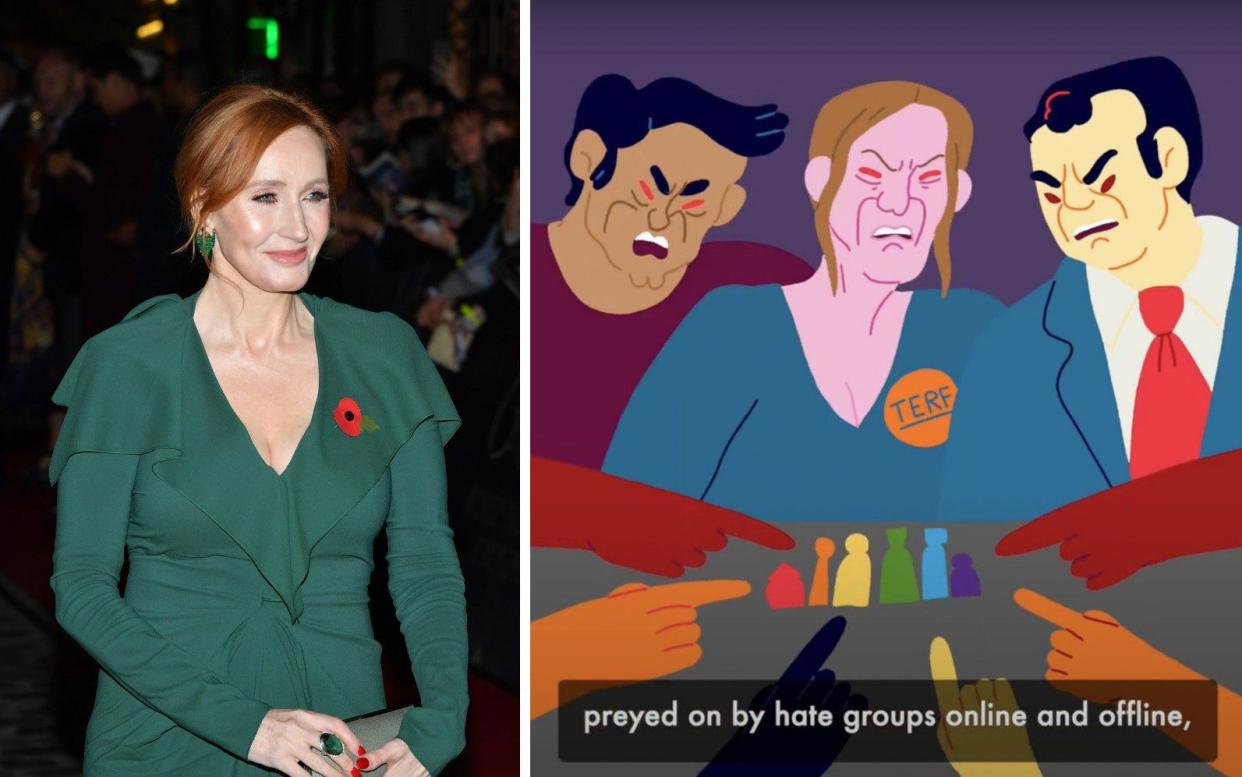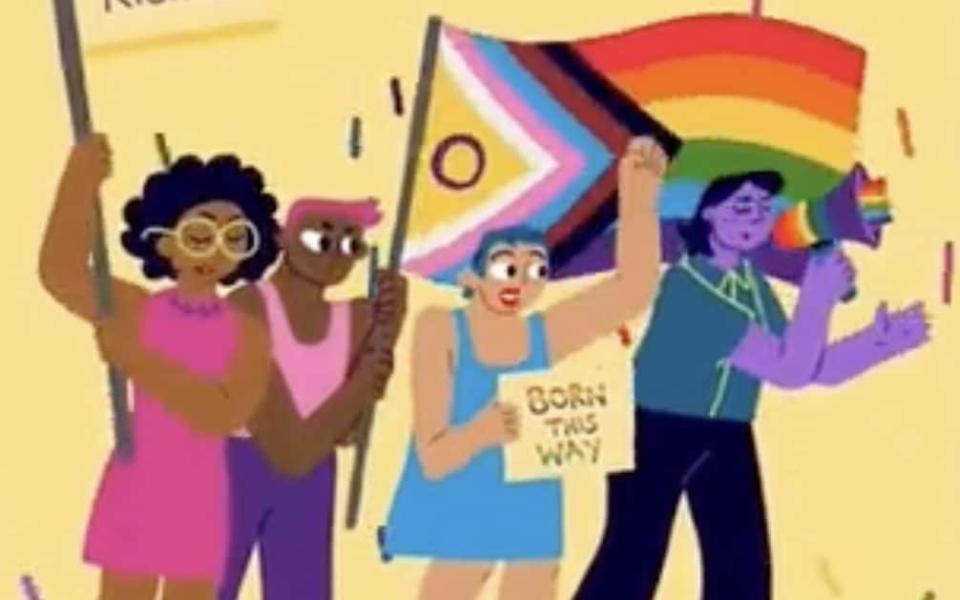Oxfam worker told she doesn’t know oppression because she is straight

A former Oxfam worker claims she was told she could not know what oppression is because she was straight.
The employee is one of three more staff members to have come forward to spotlight the persecution that gender-critical women were subjected to by the charity, making a total of four women whose concerns have been reported by the Telegraph.
The three whistleblowers were emboldened to speak out after Oxfam was accused of attacking JK Rowling over her views on transgender issues in a controversial Pride cartoon.
Sally, who was a paid employee at Oxfam HQ, in Oxford, told the Telegraph she was berated by a colleague, who described himself as on the “trans gender spectrum”, during a conversation about women in prison encountering male sex offenders identifying as trans women.
“He was immediately scathing and dismissive of my concerns, saying that there was a moral panic around trans women imprisoned with ‘other women’ and that it was all a load of b------t’,” said Sally, a single parent and a feminist concerned about male violence towards women and girls.
“He raised his voice, telling me that ‘transphobic prisoners’ were making up such stories and were very likely to be terfs, and this kind of talk harms trans people and can lead to their suicide.”
Trans women’s shoes
“This same colleague said to me in a disagreement about some aspect of women’s oppression or rights ‘cis women don’t get to tell trans women about oppression, until you have walked in a trans woman’s shoes, you don’t even know what oppression is’.”
Sally said she considered making a formal complaint because she “felt bullied and very uncomfortable” going into work on a daily basis and had begun to look for other jobs.
But when she “tested the water” with a senior colleague in an informal conversation, she said they were “so hostile, coming close to calling me a bigot”, and told her to “think very carefully about your privilege” before “you paint yourself as the victim”.
Sally began looking for other jobs and recently left the organisation. She said she was too intimidated to pursue a case against Oxfam, because she worried that being accused of transphobia would ruin her reputation in the workplace.
Gita, a young lesbian who works at Oxfam’s Delhi office, who wanted to remain anonymous, said she overheard a conversation between colleagues about rumours, which later proved to be unfounded, of a large donation from one of JK Rowling’s charities.

Her colleagues responded to the news saying: “No way would we take money from that transphobe!”
Gita said: “I was horrified that they were willing to turn down money that would go to alleviate hardship for impoverished people because of this terrible ideology.
“No one challenged them about what they said about JK.”
Gita also recalled one of her male colleagues lecturing her on being “whorephobic” after she made disapproving remarks about the Oxfam sexual exploitation scandal in Haiti.
Gita left the organisation before she could get another job, because she feared she would fall out with senior management and get fired which would then make it impossible for her to seek employment elsewhere.
She worked in a restaurant before managing to get a job in an international NGO.
Swerfs and Terfs
Anna, who works in London and did not volunteer her real name, said she was concerned that the reputation of Oxfam India, which “has an incredible history with decades of programmes and campaigns on women’s rights”, is being “harmed by now promoting an unscientific and deeply harmful ideology”.
Recalling her experiences working for the charity, she said: “We were called Swerfs (a feminist woman who opposes sex work) and Terfs (hostile transgender views).
“Women who had been working for decades on women’s rights, including those in very senior roles, told me they were too scared to say what they really thought sex work was not work, and deeply harmful to women,” she added.
The widening scandal engulfing Oxfam over the mistreatment of gender-critical women working for the charity has been described as an act of reputational self-immolation akin to an infamous 1991 speech from Gerald Ratner, whose description of his jewellery products as “crap” led stocks to plummet by £500 million.
Maya Forstater, the co-founder of the Sex Matters campaign, told MailOnline: “I think this could be Oxfam’s Ratner moment if they don’t start standing up for women’s rights.”
An Oxfam spokesman said: “Oxfam aims to be an inclusive organisation which is welcoming of people of different beliefs and respectful of different identities.
“We are committed to tackling discrimination of all kinds – including against the LGBTQIA+ community – because it is a barrier that stops people escaping poverty and living their lives to the full.
“We would encourage anyone who feels that they have been treated unfairly at Oxfam to make a complaint so that we can investigate and take action if appropriate.”

 Yahoo News
Yahoo News 
